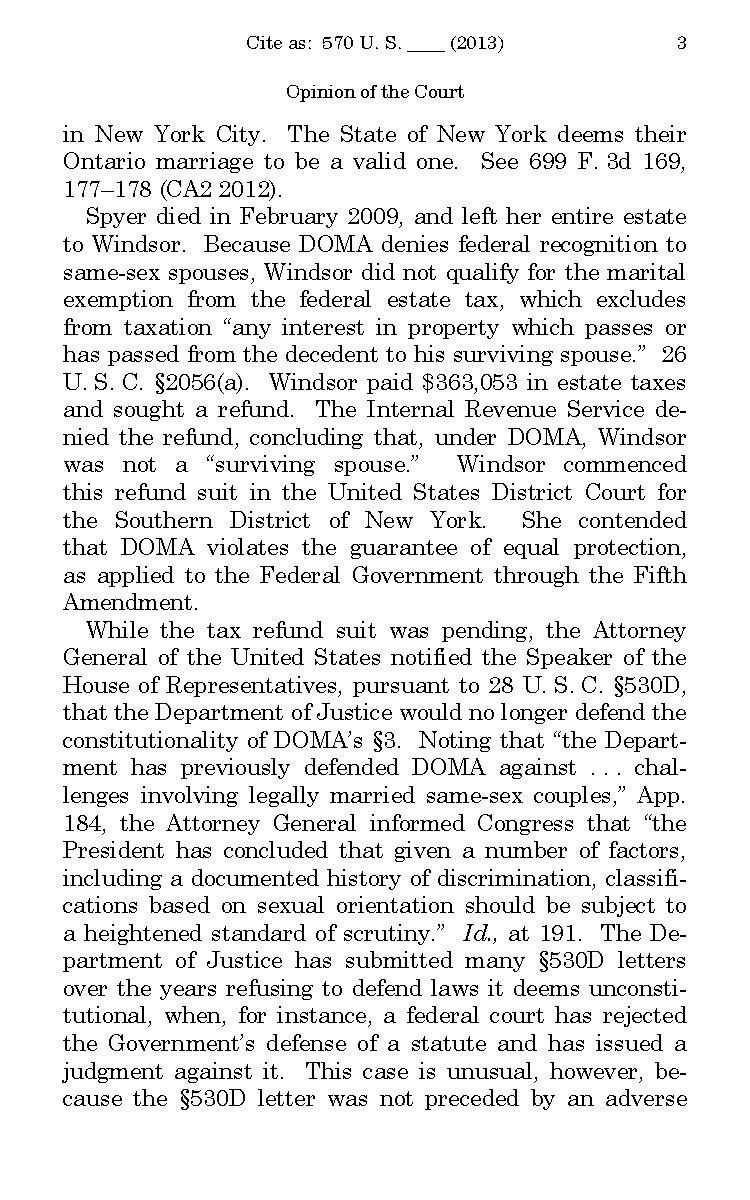in New York City. The State of New York deems their Ontario marriage to be a valid one. See 699 F.3d 169, 177–178 (CA2 2012).
Spyer died in February 2009, and left her entire estate to Windsor. Because DOMA denies federal recognition to same-sex spouses, Windsor did not qualify for the marital exemption from the federal estate tax, which excludes from taxation "any interest in property which passes or has passed from the decedent to his surviving spouse." 26 U.S.C. §2056. Windsor paid $363,053 in estate taxes and sought a refund. The Internal Revenue Service denied the refund, concluding that, under DOMA, Windsor was not a "surviving spouse." Windsor commenced this refund suit in the United States District Court for the Southern District of New York. She contended that DOMA violates the guarantee of equal protection, as applied to the Federal Government through the Fifth Amendment.
While the tax refund suit was pending, the Attorney General of the United States notified the Speaker of the House of Representatives, pursuant to 28 U.S.C. §530D, that the Department of Justice would no longer defend the constitutionality of DOMA's §3. Noting that "the Department has previously defended DOMA against ... challenges involving legally married same-sex couples," App. 184, the Attorney General informed Congress that "the President has concluded that given a number of factors, including a documented history of discrimination, classifications based on sexual orientation should be subject to a heightened standard of scrutiny." Id., at 191. The Department of Justice has submitted many §530D letters over the years refusing to defend laws it deems unconstitutional, when, for instance, a federal court has rejected the Government's defense of a statute and has issued a judgment against it. This case is unusual, however, because the §530D letter was not preceded by an adverse
